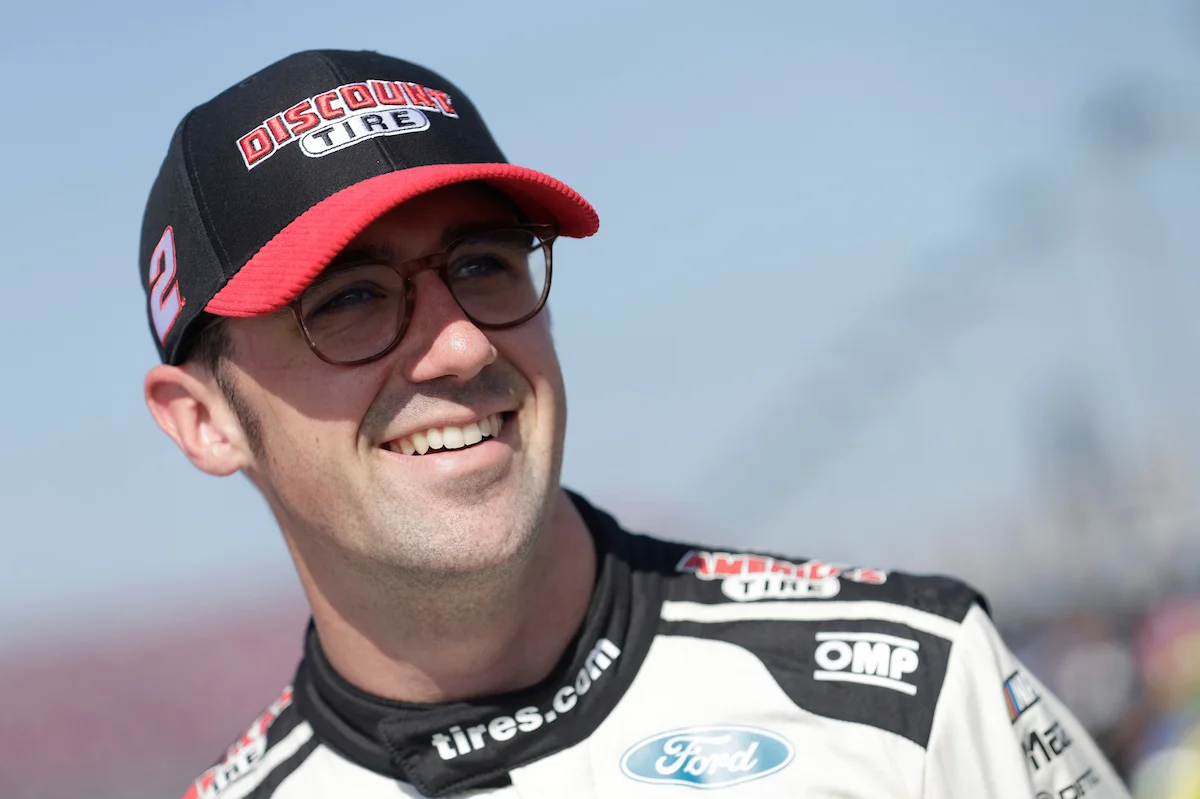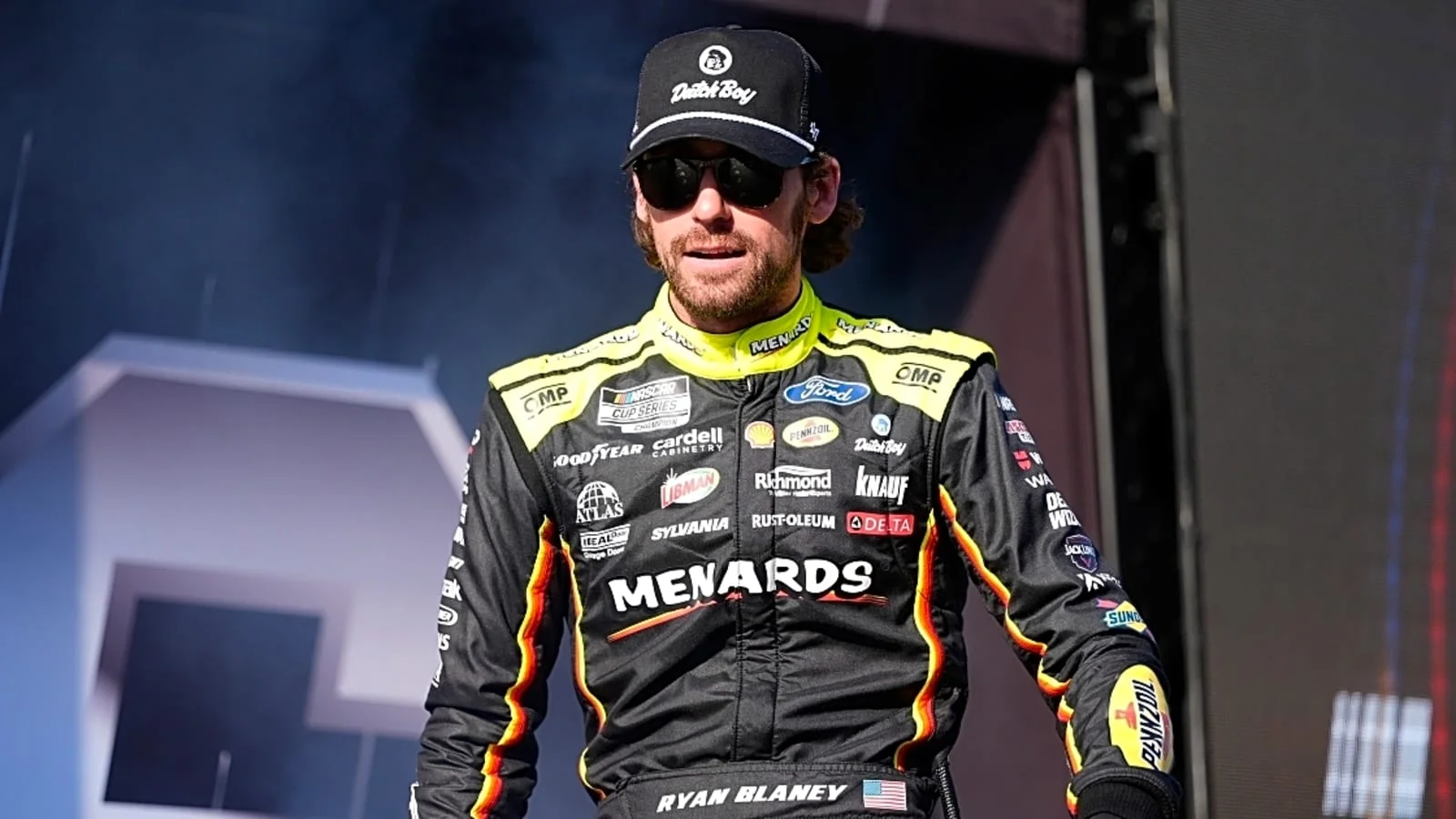Ryan Blaney’s NASCAR playoff mindset has become a focal point as controversy erupts over the league’s new fastest-lap point rule, which recently stirred debate following Josh Berry’s unexpected performance at Darlington. With playoff stakes intensifying, the issue puts drivers such as Blaney, Josh Berry, Alex Bowman, and even NASCAR officials under the spotlight as they weigh the rule’s impact on competition and advancement in the Cup Series.
Unexpected Fastest Lap Puts Rule in the Crosshairs
Josh Berry’s blazing fastest lap at Darlington caught the entire NASCAR fanbase and traditionalists off guard, as the underdog secured his inaugural fastest-lap distinction of the 2025 Cup Series season. Despite languishing at the bottom in points, Berry’s achievement netted a critical bonus, placing him in a tense tie with Alex Bowman for the final playoff transfer position. Each now sits 19 points behind the coveted Round of 12 cutoff, raising the stakes as the series moves to Gateway and Bristol. For Berry, a win appears to be the only assured route to continue in the postseason, a fact that has left his competitors scrutinizing the fairness and intent behind NASCAR’s fastest-lap rule.
This latest rule—adopted across all national NASCAR series this season—has opened the door for drivers outside championship contention to pursue lucrative bonus points by recording the single fastest lap during a race. The concept mirrors a strategy previously used by Kyle Larson at Mexico City and Watkins Glen, where extra points solidified his playoff position. The controversy now finds NASCAR officials, including managing director Mike Forde, at the center of a brewing dispute over the rule’s merit and application.

When pressed on the matter, Ryan Blaney was forthright about how little the issue has affected him:
I don’t care. I don’t really care, to be honest with you. Um, no. I don’t really care. Um, I haven’t really even paid that any thought, to be honest with you. I know it’s happened a few times with like guys wreck and they’re a bunch left down and they just go make runs. Um, but yeah, it doesn’t really hasn’t affected my life yet. So, I don’t know.
—Ryan Blaney, NASCAR Cup Series Champion
Debate Divides the Garage and Fans
The fallout from Berry’s milestone prompted strong opinions among purists and commentators. Some argue the fastest-lap point should be reserved for genuine contenders rather than those making a late charge after being taken out of the main event. As one columnist explained,
allows teams to essentially run a one-lap qualifying setup mid-race,
—Unnamed Columnist
While skeptics warning of potential abuse echo concerns about the rule’s true function, others see it as an authentic bonus for perseverance. The core question remains: is the fastest-lap rule being skillfully utilized, or is it merely a loophole subject to exploitation?
Meanwhile, Ryan Blaney addressed another technical aspect drivers face, emphasizing the demanding nature of downshifting on current tracks:
I think the two ends being very difference challenging. We have places like that. Um, but that’s, that’s tough, and especially double downshifting in one and two is tough. Fifth to third, back up to fifth, down to fourth for three and four, then back up to fifth. It’s a lot of stress on everything. Like, so you’re trying to make sure that when you just single downshift, you’re trying not to over-rev. And then when you add another one in there, it’s really easy to over-rev. And I think you see a lot of engine issues here just because of that. You get too quick with it. Um, so that’s a concern.
—Ryan Blaney, NASCAR Cup Series Champion
Josh Berry’s Lap Changes the Playoff Calculus
Josh Berry’s Darlington experience serves as a testament to the unpredictable nature of this bonus point. After an early crash forced him into a lengthy stint in the garage, Berry returned to the track with a singular goal. On his 114th lap back, he delivered a 29.038-second rocket, the fastest of the grueling 367-lap contest, and snatched the Xfinity Fastest Lap award. That single lap may become the deciding factor as Berry and Alex Bowman wrestle for a final playoff spot at circuits like Gateway and Bristol.
The incident also reignited the discussion over whether the fastest-lap point should only be eligible to those still contending for the win or remaining on the lead lap. However, supporters of the rule believe it symbolizes the spirit of competition and determination present in every corner of the garage. In the words of one commentator,
Why fix something that electrifies the garage and rewards determination?
—Unnamed Commentator
One possible option under review is to restrict the award to competitors who are on the lead lap by the finish, although any substantive changes are not expected until at least the 2026 season.
Ryan Blaney’s Approach to the Playoff Run
Amid the controversy, Ryan Blaney’s own playoff outlook remains firmly anchored in a philosophy of focus and execution. The defending Cup Series champion approaches each round not with panic, but with meticulous preparation and the mantra of taking things one event at a time—a mindset that mirrors the intense and charged mood prevailing in the garage.
Blaney discussed his approach in an interview with SiriusXM NASCAR Radio:
I mean, I think historically, we’ve had good runs at the playoff tracks. But you never know what’s going to happen, right? You could miss it one weekend and be behind the eight ball. You just go try to do the best job you can. I don’t know, I don’t really look forward to one more than others.
—Ryan Blaney, NASCAR Cup Series Champion
His varied strengths mean he’s just as comfortable at a superspeedway as at a short track or road course. Importantly, his strategy does not waver regardless of the venue or lifting pressure. The targeted focus and adaptability have steered his Team Penske entry into prime championship contention year after year.
He elaborated further on his routine:
I just try to look at what’s the next race, and I look forward to that one the most. Like, I focus all of my energy into just one week at a time type situation, and how do I give all of my effort to Gateway this weekend, and that’s the one I’m looking forward to the most, and then it will change to Bristol next week, you know?
—Ryan Blaney, NASCAR Cup Series Champion
What’s at Stake as Rule Scrutiny Mounts?
Blaney’s calm attitude contrasts sharply with the mounting turbulence surrounding NASCAR’s rule changes. For drivers hovering near the playoff edges, like Josh Berry and Alex Bowman, every bonus point carries the weight of their postseason fate. For others with a larger lead, the fastest-lap bonus is a strategic tool that could prove decisive at tracks infamous for unpredictability, such as Talladega or Bristol.
Kyle Larson’s previous use of the bonus at Mexico City and Watkins Glen further demonstrates its potential to swing playoff standings, encouraging teams to develop new, and sometimes controversial, tactics for point accumulation. Officials, led by figures like Mike Forde, are under pressure from both logical purists and passionate fans to evaluate whether the award still serves its intended competitive purpose or needs tightening to prevent manipulation.
The Road Ahead: Pressure Cooking as Gateway Looms
With Gateway and Bristol offering the final chances for playoff hopefuls, NASCAR’s fastest-lap rule continues to spark debate throughout garages, pressrooms, and fan communities alike. Whether the current system remains unchanged or gets adjusted for 2026, the charged environment ensures that every driver’s on-track action and every strategy will be under the microscope.
Ryan Blaney, by maintaining a disciplined playoff process, stands as an example for professional focus amid intense scrutiny. As the postseason drama unfolds, the implications for drivers, including Josh Berry and Alex Bowman, could hinge on a single moment of speed executed under the sport’s most intense pressure.
